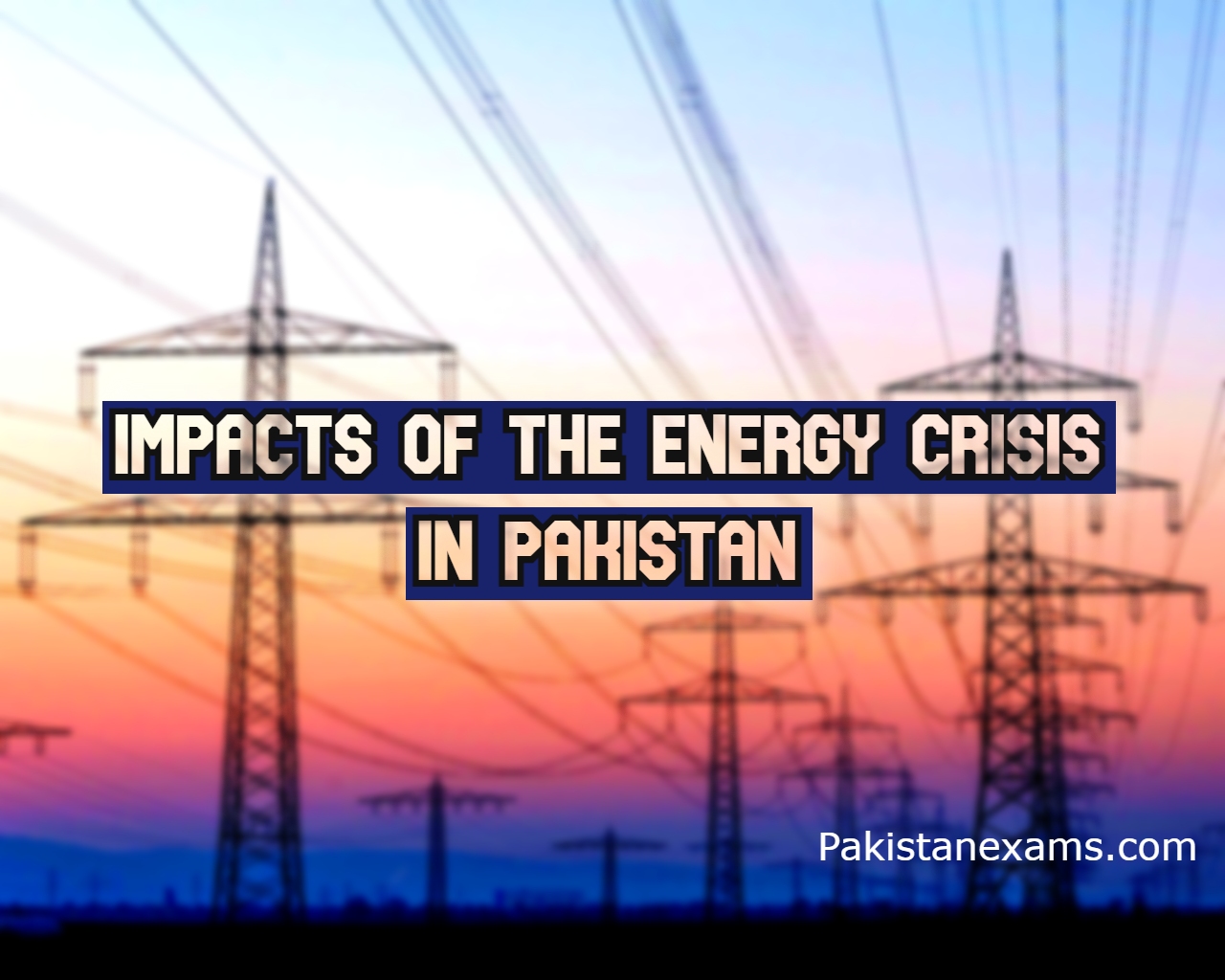Introduction
The energy crisis in Pakistan has significantly affected the country’s economy, society, and environment. Frequent power outages, setbacks in industrial production, and environmental challenges have all contributed to the crisis. In this blog post, we are going to explore the various impacts of this energy crisis, emphasizing the need for sustainable solutions to address the situation urgently.
Impacts of the Energy Crisis
Economic Impact
The energy crisis affects factories and industries in Pakistan. The frequent power outages and energy shortages have significantly reduced industrial production. In this regard, The Pakistan Business Council reports that these issues have caused production losses equivalent to 2% to 3% of the country’s GDP. Furthermore, the energy crisis has caused slower economic growth. It has also become a major obstacle to economic progress. According to estimates by the Pakistan Business Council, the shortage of energy has led to a 2% to 2.5% annual reduction in GDP growth. Moreover, many industries have shut down in Pakistan due to the energy crisis. The closure of factories results in unemployment and harms the economic growth of Pakistan.
Click here to read about the causes of the Energy Crisis in Pakistan.
Disruptions in Daily Life
Citizens in Pakistan face disruptions due to prolonged power outages. In urban areas, people experience around 12 to 14 hours of load shedding per day, while rural areas suffer even longer, with 18 to 20 hours of power cuts daily. This load shedding has disrupted the daily activities of people in Pakistan.
Deterring Investment
Foreign Investment is necessary for a country’s economic growth. In the case of Pakistan, it has been discouraged because of the Energy Crisis. The reason is that the energy infrastructure of the country is unreliable. The State Bank of Pakistan highlights the energy sector’s inefficiencies as a significant concern, resulting in decreased Foreign Direct Investment (FDI).
Environmental Challenges
Pakistan relies nearly 40 percent on fossil fuels to meet its energy needs. This Heavy reliance on fossil fuels contributes to air pollution. The World Health Organization estimates that 22,000 premature deaths occur annually in Pakistan due to pollution-related illnesses.
Public Dissatisfaction
The energy crisis has sparked social unrest, with 90% of Pakistanis expressing dissatisfaction with the government’s management of the situation, according to a Gallup Pakistan survey.
Conclusion
These effects highlight the pressing requirement for extensive reforms and lasting solutions to tackle Pakistan’s energy crisis. The goal should be to enhance economic stability, social welfare, and environmental sustainability.
TEST YOUR KNOWLEDGE:
Hi! I hope you got something from the above topic. Now attempt the given question to test your knowledge.
- What are the impacts of energy crises in Pakistan?
- How serious are the effects of energy crises in Pakistan?

